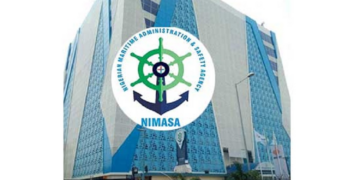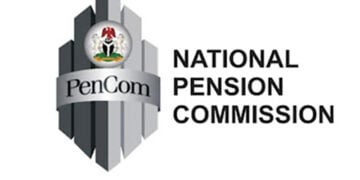The Federal Ministry of Marine and Blue Economy has reported an increase in revenue for the first quarter of 2024, with N242 billion compared to N126 billion recorded in the same period in 2023, indicating an increase of 92 per cent.
A breakdown indicated that the Nigerian Ports Authority (NPA) grew its revenue from N82.98 billion in the first quarter of 2023 to N170.49 billion in the first quarter of 2024.
In the same vein, the Nigerian Maritime Administration and Safety Agency (NIMASA)’s revenue rose from N37.4 billion in the first quarter of 2023 to N62.15 billion in the first quarter of 2024. The Nigerian Shippers Council (NSC) recorded N4,878,647,275 in the first quarter of 2023 and N8,675,726,271 in the first quarter of 2024. Lastly, the National Inland Waterways Authority (NIWA) recorded 1,087,157,340 in the first quarter of 2023 and 1,488,588,802 in the first quarter of 2024.
Oyetola highlighted that this performance represents a 92 per cent increase compared to the same period in 2023.
Minister Adegboyega Oyetola disclosed this achievement yesterday, during a ministerial briefing marking the first year of the Tinubu administration.
Oyetola emphasised that this milestone is significant for the newly established ministry, created to harness Nigeria’s vast marine resources and diversify the national economy.
He noted that the ministry, created by President Bola Ahmed Tinubu, aims to tap into Nigeria’s 853 kilometres of coastline and expansive maritime area of 46,000 square kilometres. This initiative is strategically designed to maximise the country’s ocean resources while promoting sustainable economic growth.
“We have an exclusive economic zone of over 200 nautical miles and 10,000 kilometres of inland waterways, capable of supporting vibrant intra-regional trade. Our strategic navigational routes link Africa with North and South America, Europe, and Asia, making the shipping industry a major potential driver of our economy.
“The recent expansion of Nigeria’s continental maritime domain, adding an additional 16,300 square kilometres—six times the size of Lagos State—has further bolstered the country’s marine resource base. This expansion is the result of diligent efforts by the Presidential Committee on Nigeria Extended Continental Shelf Project.
“The Blue Economy, which encompasses all economic activities related to water, is not just about commerce. According to the World Bank, it involves the sustainable use of ocean resources for economic growth, improved livelihoods, and job creation, all while maintaining the health of the ocean ecosystem. This sector includes a wide range of activities, from fishing and maritime security to coastal tourism and marine biotechnology.
“The impressive revenue increase is attributed to several strategic measures implemented by the ministry. These include a 10 per cent rise in the number of vessels calling at Nigerian ports, resulting from significant investments in port infrastructure. Enhanced security measures, improved port facilities, and technological advancements in revenue collection have all played a crucial role,” the minister said.
Oyetola added that the ministry’s efforts have also focused on resolving long-standing issues such as congestion and illegal checkpoints on port access roads. For instance, the Tin-Can Island Port corridor, notorious for traffic gridlock, has seen significant improvements, saving billions of naira annually.
Additionally, he stated that the completion of key projects like the Funtua Dry Port and the rehabilitation of access roads in major ports have been instrumental. Collaboration with the Federal Ministry of Works has led to the repair of crucial port roads, further enhancing port efficiency and economic growth.
“The ministry’s forward-thinking approach includes promoting inland dry ports to decongest seaports and reduce transportation costs. The Funtua Dry Port, commissioned in May 2024, is set to ease business operations and boost trade.
“Fisheries and aquaculture also form a core part of the ministry’s agenda. An agreement with Delta Systematics Group aims to position Nigeria as a leader in fish production. The transition of the Department of Fisheries to the Ministry of Marine and Blue Economy is expected to significantly boost fishery outputs and create jobs.
“Future plans include the deployment of advanced monitoring systems to combat illegal fishing, enhancing artisanal fisheries, and developing policies to support sustainable fisheries. Engagements with international bodies and private sector investments are underway to further expand the sector.”
According to him, the ministry’s achievements extend to port operational efficiency, with initiatives to automate processes, reduce bureaucratic bottlenecks, and enhance revenue transparency. The implementation of a Port Community System and procurement of port scanners are among the steps taken to streamline operations.
Oyetola emphasised that maritime security has also been prioritised, with the deployment of armoured patrol boats and advanced surveillance systems ensuring safety in Nigeria’s waters. These measures have resulted in a notable reduction in piracy and maritime terrorism.
“As the Ministry of Marine and Blue Economy celebrates its first year, its achievements underscore the potential of Nigeria’s blue economy to transform the nation’s economic landscape. The comprehensive policy framework, set to be finalised by December 2024, promises to further solidify Nigeria’s position as a premier maritime nation.
“This impressive revenue growth is not just a testament to the ministry’s strategic initiatives but also a harbinger of the transformative impact the blue economy can have on Nigeria’s future,” he said.











